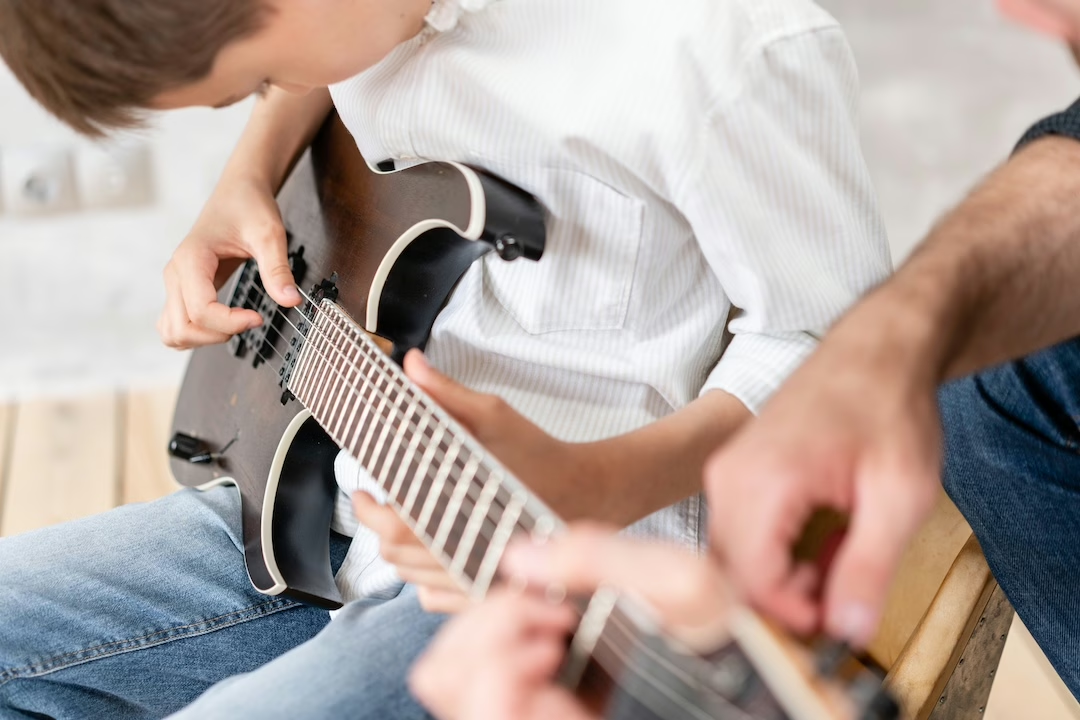Many parents want to know what instrument would be ideal for their child. What instrument is most likely going to be a successful experience for my child? This question especially comes up when kids have learning disabilities. Are certain instruments more difficult or friendly for children who learn differently? For dyslexia?
Whether your child is neurotypical or has learning differences, is older or younger, ultimately the best instrument to choose would be the instrument that excites and motivates them the most. Are they asking to play violin or electric guitar? The instrument that draws them in is more likely to help fuel the regular practice and stamina required for learning an instrument. If your child needs more opportunities to decide what instrument they love the most, consider some concerts. Local high schools will have orchestral, choir and band concerts either for free or a reasonable cost. Sometimes area symphonies will offer “instrument petting zoos” where kids get an up-close look at instruments before or after the concert. If you attend a place of worship that plays live music, be sure to give your child a chance to approach the stage and ask the musicians questions (just don’t touch any instruments as they are precious and fragile.) Attend a friend’s piano recital. Go see a rock band or look for kid-friendly live music opportunities, such as a Friday night at a fun restaurant that plays live music.
After your child has figured out an instrument or two that really pique her interest, it is time to look for a teacher. The right teacher will absolutely make or break this experience. Ask around with other families. Do they recommend a certain teacher? Why do they like the teacher? You could email the area middle school band and orchestra directors and ask for teacher recommendations. You could also look at the directory offered by the Suzuki Association of the Americas for teachers in your area. When you find a potential teacher, reach out and get a feel for them. How do you feel about their communication style with you? Ask for their lesson policies. If they will let you, I highly recommend asking to observe a lesson with one of the teacher’s current students. This will show you so much more than a trial lesson. How is the rapport between the teacher, child and parent? Does the teacher’s style and personality seem like a good fit for your family? Is this a caring and creative person, ready to encourage and problem solve with your family, or someone who is rigid and inflexible? If the lesson observation went well, meet with the teacher to chat further. If needed, now is the time to discuss any learning differences and to see the teacher’s thoughts and approach to creating an inclusive and successful environment. They don’t have to be a SPED professional; you ultimately want someone who is collaborative and kind. They should be willing to help you with orchestral, band or outside music if needed. If your child has dyslexia, they may need to be able to flex and get creative around note-reading expectations.
A few other factors to keep in mind would be the accessibility of the instrument and teacher. For instance, did you find an amazing teacher? If not, it may be worth compromising on the instrument choice as a good teacher is paramount. Some instruments are more expensive, so that could be something to keep in mind. Also, a harp or an upright bass are much more difficult to lug around than a violin or flute. These are logistics, but they can matter. If your child has issues around their bite or TMJ, I would be careful with instruments that involve the mouth and jaw. It doesn’t mean they are completely off limits, but thought needs to be put into this.
Ultimately, the most important pieces are choosing an instrument that motivates your child to play, and finding an excellent “right-fit” music instructor. Have fun!

Leave a Reply